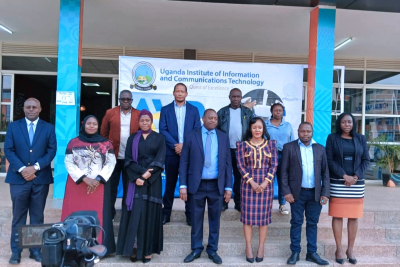Despite the challenges, African countries are investing in adopting ICTs across sectors. When it comes to education, Uganda wants to move forward.
Ugandan authorities on Friday, August 23 in Kampala inaugurated the steering committee of the Augmented Virtual Reality (AVR) project of the Uganda University of Information and Communications Technology (UICT), a public university in the country. The aim is to introduce augmented virtual reality into classrooms.
“1,267 UICT staff and students are registered on the AVR platform, with a total of 1,370 logins. 5,000 educational licenses, of which 1,267 have already been issued to UICT staff and students, and 750 commercial licenses have yet to be distributed. Frederick E. Kitogo, Director of UICT, said.
This initiative comes as part of the Ugandan authorities’ desire to improve the quality of education in the country. They have turned to New Information and Communication Technologies (NICT), in this case Virtual Reality (VR) and Augmented Reality (AR), to create immersive and interactive learning environments. The goal is to enhance student engagement, motivation and learning outcomes.
Uganda has also allowed the use of smartphones, tablets and computers in schools. Speaking on the subject, Amina Zwede, Permanent Secretary, Ministry of ICT, said: “We realise that computers are expensive. That is why the government has implemented projects such as providing computer labs in schools. Over time, the government is proposing measures to reduce the cost of these devices so that they are as affordable as possible to everyone.
Adoni Conrad Quinum
Read also:
Burkina Faso: Government to link five hospital centres to improve quality of healthcare

“Certified gamer. Problem solver. Internet enthusiast. Twitter scholar. Infuriatingly humble alcohol geek. Tv guru.”





